Both FKM and Viton™ have a wide range of chemical resistance and durable products that last a long time. They are used in many industries for things like oil seals and gaskets. They can handle high temperatures and stay strong.
Despite being the designation for the same material, each name is the recognized name for Fluoro-Elastomer for different organizations. In this article, you’ll learn more about FKM and Viton™, precisely their properties and applications, and come across misconceptions about both.
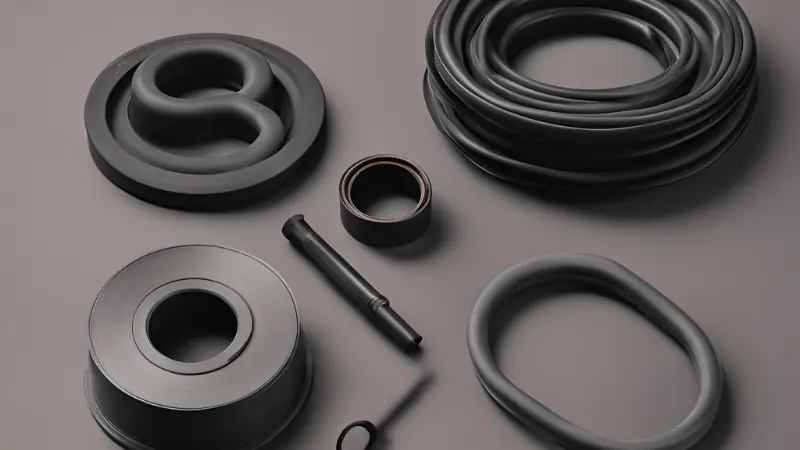
Understanding the Difference Between Viton™ and FKM Rubber
Fluorocarbon rubber, also known as FKM, is a type of synthetic rubber that can withstand high temperatures. By comparison to other commercial rubber, FKM offers the best fluid resistance of any commercial rubber.
Viton™ is the name given by Chemours (previously DuPont) to their specific brand of FKM. While there are other manufacturers of FKM, Viton™ is the most commonly recognized and used.
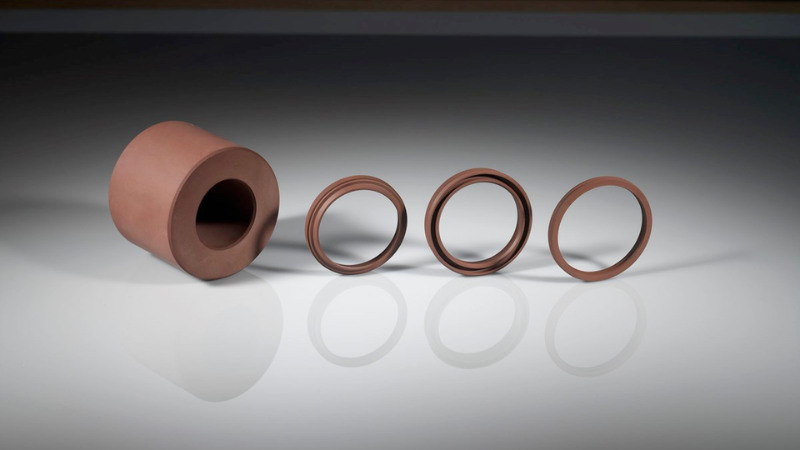
What is Viton™?
- Viton™ is a high-performance fluoroelastomer manufactured by DuPont that is particularly well-suited for high-temperature and corrosive-environment applications.
- Viton™ exhibits excellent oil, ozone, and weather resistance properties.
- Viton™ is also known for its excellent chemical resistance properties, making it a popular choice for use in harsh environments.
What is FKM Rubber?
- FKM is a type of fluoroelastomer that is also manufactured by DuPont, but it differs from Viton™ in that it is manufactured using different formulations and manufacturing processes.
- FKM exhibits excellent resistance to oil and chemicals, making it a popular choice for use in industrial and automotive applications.
- FKM is a good choice for use in high-temperature and corrosive environments, but it may not be quite as durable as Viton™.
Clearing Up Misconceptions about FKM and Viton™
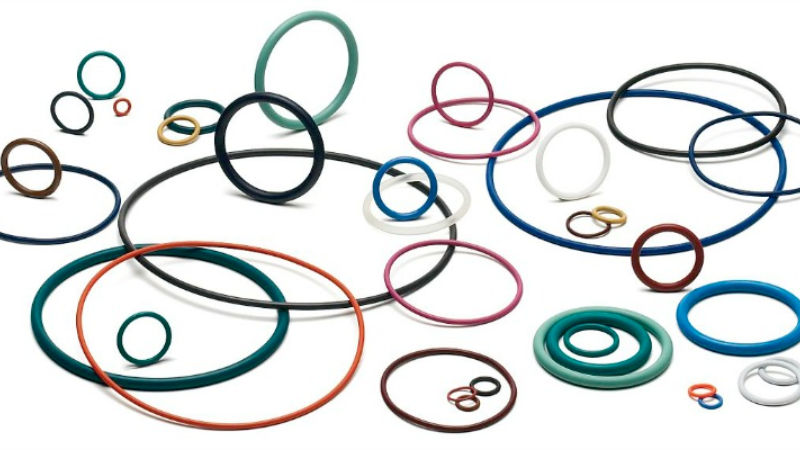
Contrary to popular belief, Viton™ is not the only type of FKM rubber available. There are other brands of FKM rubber that offer similar properties to Viton™. The term “Viton” has become synonymous with FKM rubber due to its widespread use. It’s important to understand that Viton™ is a specific brand name within the broader category of FKM rubbers.
Misconception 1: FKM Means Viton™
Many people often confuse Viton™ with being the only type of FKM rubber, but that is not the case. There are several other brands and manufacturers that produce FKM rubbers with comparable characteristics and performance. Some examples include:
- Fluorel
- Dai-El
- Dyneon
- Technoflon
While these brands may have different names, they all fall under the umbrella of FKM rubbers and share many similarities with Viton™ in terms of their resistance to heat, chemicals, and extreme environments.
The confusion arises from the fact that Viton™ has established itself as a popular choice in various industries, leading many to believe it is the only option available. However, it’s essential to recognize that there are alternatives worth considering when selecting an FKM rubber for specific applications.
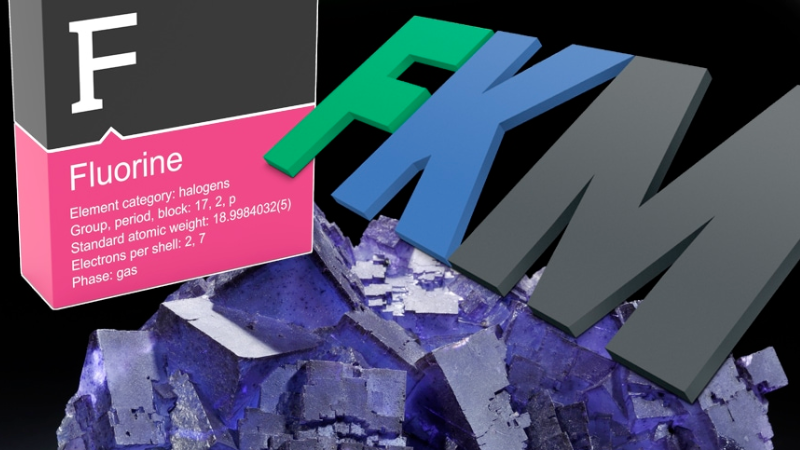
Misconception 2: There’s Only One Type of FKM Polymer
This is in connection to the first misconception. Since people think that if they ask for FKM, they’ll get Viton™, they believe there’s only one type of FKM.
This is further from the truth. Even now, as you read this article, more FKM polymers are developing in various labs worldwide. Even Chemours have at least 25 types of FKM.
The difference in FKM polymers lies in their fluorine content, curing method, and their viscosity. These affect the ability of FKM to resist reactions to chemicals and other fluids.
Make sure you understand the specific properties you’ll get from the type of FKM that you’ll get.
What Makes FKM and Viton™ Incredible Rubber Materials?
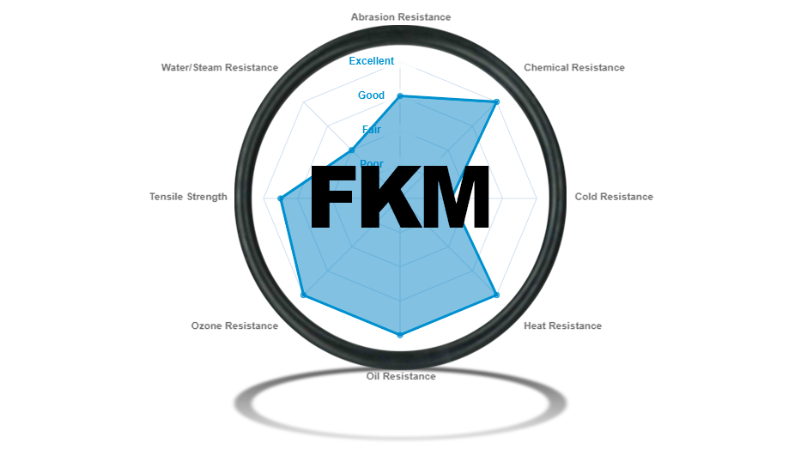
FKM and Viton™ are fluorinated polymers that you can expose to very high temperatures. This material can come in different grades – depending on what material is included. The standard grades include hexafluoropropylene, tetrafluoroethylene, and vinylidene fluoride.
As a material, FKM and Viton™ are both resistant to a wide range of chemicals, oxidizers, ozone, and other environmental factors, which makes them ideal for use in applications that require strong chemical resistance. They do have limited resistance to hot water and steam.
The same applies to polar fluids, including formic acid (and other organic acids), ketones, methanol, amines, and ammonia. FKM, specifically Viton™, has excellent weather ability properties. You’ll also notice that compared to other types of FKMs, it has a high-quality feel to them.
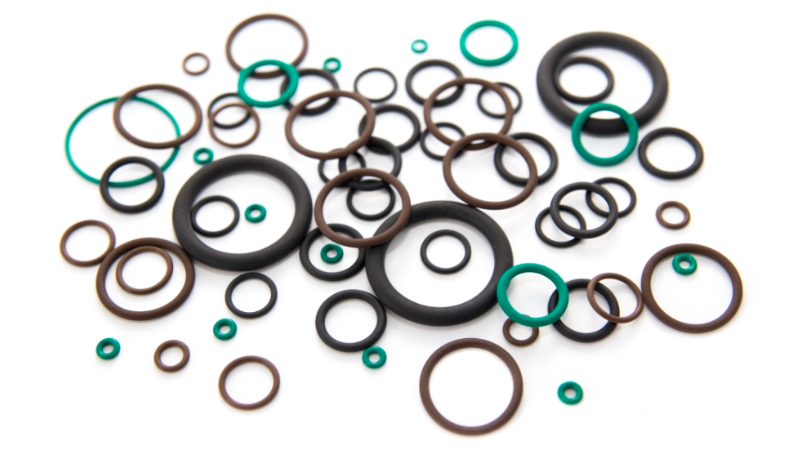
Fluoroelastomer Applications
FKM, as a material, is known for its exceptional durability and performance in high-temperature and chemical exposure environments. Because of these properties, it can be quite expensive, especially compared with other materials.
Therefore, it is important to use it only for suitable applications, where the benefits of its unique properties will outweigh the costs.
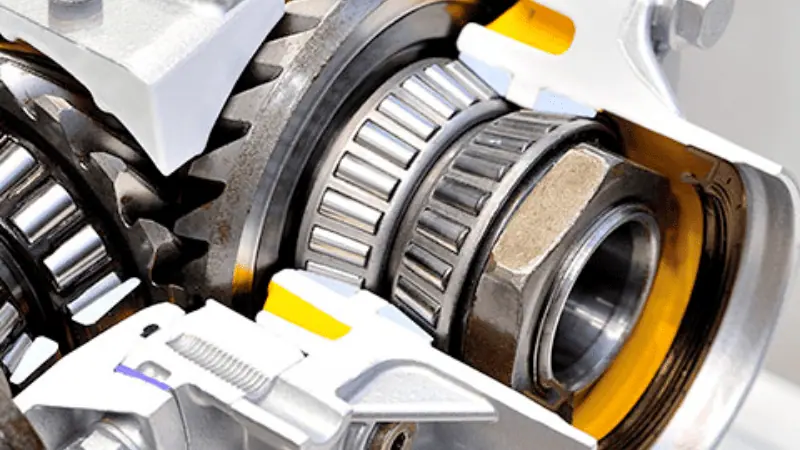
The resistance of FKM to greases, silicone oil, petrol, mineral oils, and diesel fuel makes it an ideal choice for use in a wide range of applications, including automobiles, airplanes, and various mechanical devices. In particular, it can perform exceptionally well in situations that expose it to elevated temperatures or fluids.
FKM, and Viton™ in particular, are widely used in various industrial settings. Viton™ is often the ideal choice when processing chemicals and using heavy-duty machines. Its exceptional stability and performance under these challenging conditions make it a top choice in the industrial sector.
Choosing the Right Fluoroelastomer
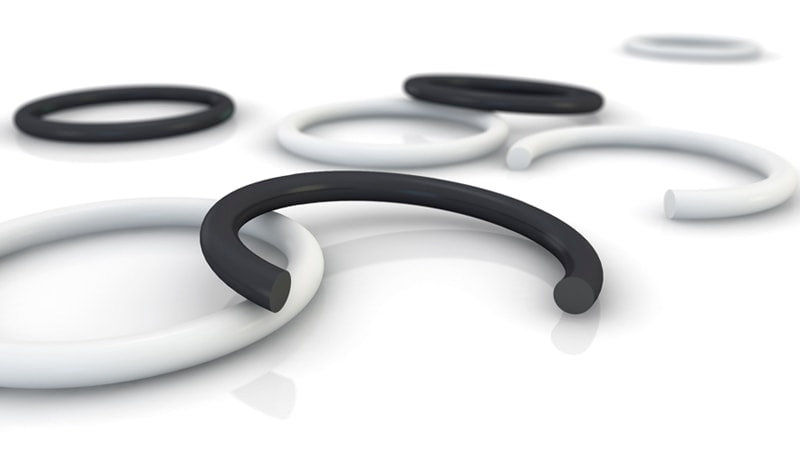
It is crucial to recognize the existence of counterfeit fluoroelastomer products in the market. If you plan to use fluoroelastomer under extreme conditions, you should avoid these fake products. To ensure the best quality and performance, make sure you choose the right type of FKM.
Viton™ is renowned for its superior quality and is the ideal choice for most applications. However, there are less costly alternatives available. Perform thorough research on the manufacturer to confirm the quality and reliability of the FKM.
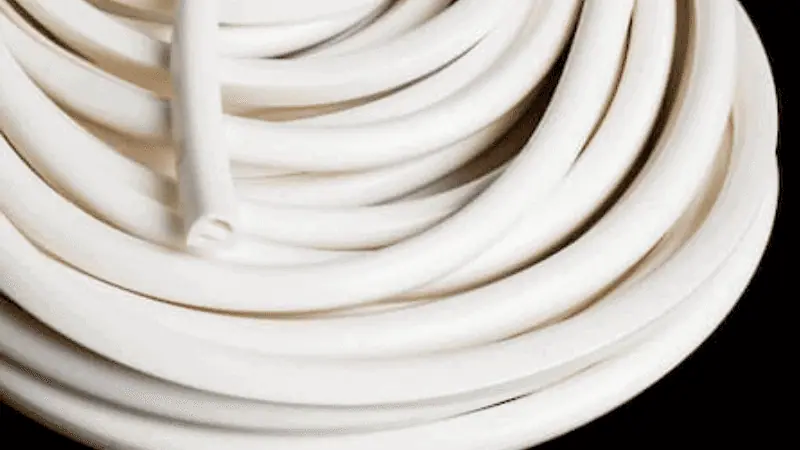
Be aware that, in some cases, the lower price tag is due to a blend of other hydrocarbon elastomers, which can compromise the key properties of FKM and make it less effective in certain applications.
To ensure you obtain the best material for your purpose, opt for Viton™. It is well-known in the industry as a top-of-the-line fluoroelastomer with exceptional performance and durability.
The high cost is justified by its exceptional quality and reputation. By choosing Viton™, you can trust that it will perform as advertised and won’t let you down in challenging situations.
FAQs
Q: Is there a difference between FKM and Viton™?
Viton™ is a brand of FKM rubber developed by the Chemours Company. While both terms are often used interchangeably, it’s important to note that not all FKM rubbers are Viton™. The term “Viton™” specifically refers to the high-performance FKM compounds produced by Chemours.
Q: Are there any limitations when using FKM or Viton™ rubber?
FKM and Viton™ rubber offer outstanding performance across various applications. However, they may not be suitable for certain low-temperature applications as their flexibility decreases at extremely cold temperatures (-26°C/-15°F or lower). In such cases, alternative elastomers like silicone or EPDM may be more appropriate.
Q: What are some common applications for VITON™ and FKM?
VITON™ is commonly used in the industrial sector for applications such as processing chemicals and using heavy-duty machines. Its resistance to high temperatures and chemicals makes it ideal for extreme environments.
FKM typically has a usable temperature range of -30°C to 200°C (–22°F to 392°F). This means it can be used in both cold and hot environments. FKM is used in a wide range of applications such as in the construction of automotive engines and transmissions, as well as in aerospace and other applications where high-temperature performance and chemical resistance are important.
Conclusion
In conclusion, understanding the difference between Viton™ and FKM rubber is crucial when making informed decisions about your material choices.
Both FKM polymer and Viton™ polymer possess unique characteristics that make them highly sought after in various industries. Their ability to withstand extreme temperatures, resist chemical degradation, and provide excellent sealing properties sets them apart from other materials.
Are you looking for High-Quality Rubber Products? Hongju Can Help You
FKM and Viton™ are the same. While there are other types of FKM, Viton™ is the ideal standard for high-quality FKM rubber. If you have specific fluoroelastomer needs, Hongju can help you. We are in the business of producing top-of-the-line rubber products and materials. We follow strict guidelines to produce only the best for clients.
Take the First Step:
Requst for an Inquire
Quality Meets Affordability. Inquire Now for High-Quality Products at Low Volumes.